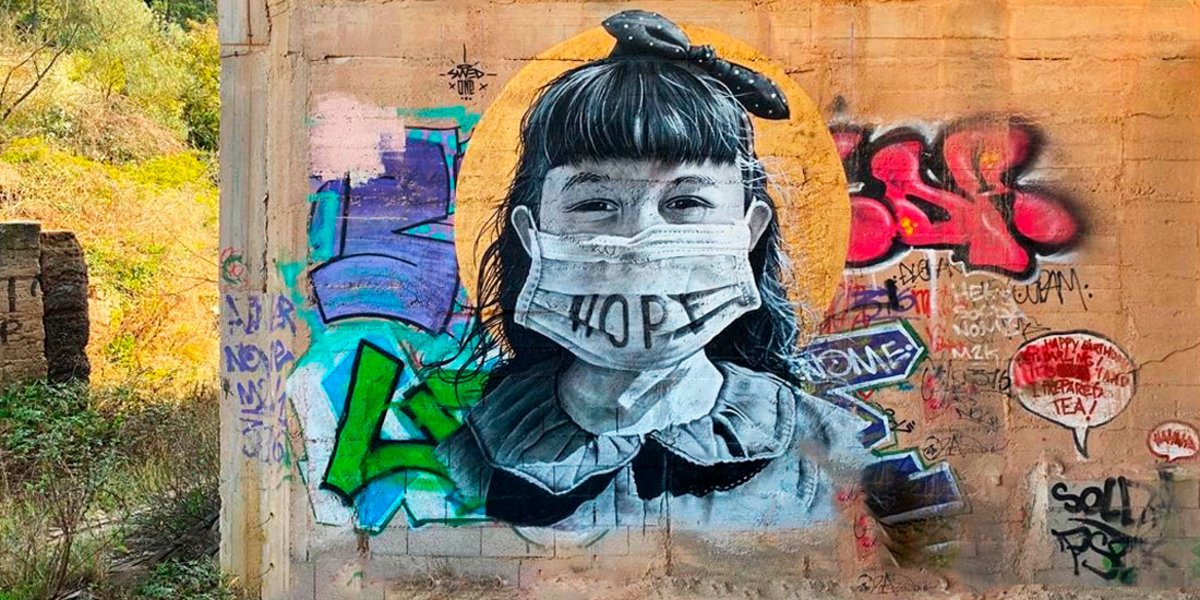An epidemic of anxiety and depression is also a threat
And here we go again for another round ... Curfew, into lockdown, out of lockdown, into lockdown again, the mental health of everyone has been thrown into jeopardy. Since the arrival of Covid-19, the announcement of new restrictions has often only generated anger and frustration, especially with regards to the health measures that have been taken. The inability to see the light at the end of the tunnel, loneliness, concerns at a professional level, the fear of losing a business, the very fear of contracting Covid-19, can all plunge many people into deep discomfort.
The current coronavirus pandemic (COVID-19) is a particular and unusual reality, and it is not to say that the psychological consequences of lockdown will have a psychological impact in the long term, underlines Claire Rogers Life Coach.
In exceptional circumstances, exceptional measures
Of course, we are facing an unprecedented crisis, and one which has come without warning. But what to think about it? For more than 2 years, we have been hearing anything and everything; the media flood us with reports, each more anxiety-inducing than the next. Governments take action regularly and change these just as often. Not to mention the figures that are presented to us every day ... Seeing the light at the end of the tunnel, having projects, or simply planning a vacation in one or in six months’ time is no longer even possible ... There is plenty to go crazy about ... However, even with the vaccination campaign underway ( whatever you may think about that!) the world realizes that the pandemic will be with us for some time yet to come.
Since the start of the epidemic our way of life has changed:
Feelings of unease and also depression are gaining ground. In recently published scientific review, The Lancet underlines the risks that this situation of lockdown poses in terms of the development or aggravation of mental disorders after this quarantine, both in the short and in the long term. For example, there is a higher risk of post-traumatic stress disorder, confusion, and aggressive behavior.
The impact on young people:
The epidemiological situation has an impact on everyone's life, including that of young people. A Boston University researcher survey of nearly 33,000 college students across the country,, found thar the prevalence of depression and anxiety among young people continues to rise, now reaching all-time highs, a sign of the rise in stressors due to the coronavirus pandemic, political unrest, racism, and systemic inequalities. There are also various addiction problems among young people, such as the more regular use of cannabis and the occasional use of CBD.
Overexposure to media can make stress worse
As with depressive states, anxiety took a hold during the course of the last couple of years. Stressors are recurrent during periods of lockdown, especially with the media and social networks, which disseminate information on how the virus is evolving. Indeed, although information on the practices of hygiene and information on how to slow the spread of the virus is essential, overexposure to anxiety-inducing information can lead to increased stress.
A certain loneliness sets in
One of the most common feelings during this pandemic is loneliness, as our social habits, our friendships and family gatherings have simply been put on hold or have been limited. Yes, dating during coronavirus has become one of the major problems for singles. The fact of being locked down accentuates the effect of loneliness which can be responsible for depressive disorders. All these negative effects on our health have become exacerbated and we will discover what they are over time.
Finding a solution
All these manifestations related to stress, anxiety and depression are normal in the context of a pandemic. Most people have the resources and the skills to adapt to this type of situation, whilst for others, the path of emotions is much longer and more complex. The ideal would be to be able to return to normal or, as I like to say, to the same life that we had before (almost).
But in the meantime, we just have to hang on in there and beware of sensationalist news from little-known or questionable sources. The solution of learning to take care of yourself and tame all these new emotions can make them into a strength, says Claire. Pay attention to your feelings, emotions, and reactions, and give yourself permission to express them to someone you trust or to express them through writing, a great tool, not to mention physical activity. Nothing like a forest walk to change your mind set during the pandemic!
To come out of this as best as possible, perhaps we have to accept to live through this, as just one more human experience.








